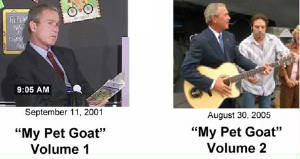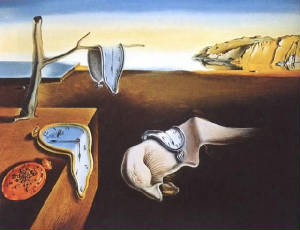|
 |
 |
| |
|
Feb 3
|
Birth to Six Months:
Leaving a young baby to cry for long periods in the first four months of life doesn't teach him to wait longer for a meal.
It doesn't teach him that he doesn't need another cuddle. It doens't teach him to go back to sleep. It teaches him that
there is no one out there who cares, and that there's nothing he can do about it.
|
|
Feb 19
|
Six Months to 18 Months:
In many ways, this is a delightful age, in other ways, it can be pretty testing. You have to keep a step ahead of the
game; eyes int he back of the head come in handy. You'll be able to get less done while your baby is awake because she's
more mobile - and she'll be awake longer. During that time, you'll also notice that your baby needs increasing attention
from you in the form of play. She can't yet do much by herself, but she's old enough to get bored when she isn't getting
enough stimulation.
|
|
Jan 14
|
Rule #6: Warnings
There are two kinds of warnings. One tells a child what's coming next - you're the Speaking Clock telling her that bath
time is coming up soon, or that you're getting near to putting her lunch on the table. The other is a warning for bad behavior.
That gives her the chance to correct her behavior without any further discipline.
|
|
Jan 16
|
Rule #7: Explanations
A small child can't understand how you want him to behave unless you tell him. Show and tell to get the message across.
Don't reason or make it too complicated - just state the obvious. When you are disciplining a child, explain why in a way
that is appropriate for that age. Ask him if he understands the reason why he has been disciplined so that the message hits
home.
|
|
Jan 17
|
Rule #8: Restraint
Keep cool. You're the parent and in charge. Don't answer a tantrum with a display of anger or respond to shouting by
shouting back. You're the adult - dont' let them wind you up.
|
|
Jan 18
|
Rule #9: Responsibility
Childhood is all about growing up. Let them. Allow them to do small, achievable things to boost their self-confidence
and learn the necessary life and social skills. Get them involved in family life. But make sure your expectations are reasonable.
Don't set them up for failure.
|
|
 |
 |
|
|
 |
 |
|
 |
|
|
 |
 |
|
 |
 |
 |
 |
 |
|
 |
 |
|
Tips & Advice
|
|
|
Jan 19
|
Rule #10: Relaxation
Quality time is important for everyone, including yourself. Let your child unwind at bedtime witha story and cuddles.
Make sure you, your partner, and your other kids have quality time for individual attention.
|
|
Jan 24
|
The first 5 years of childhood are a time of rapid change on all fronts - physically, mentally, and emotionally. The physical
milestones are easy to spot. In what seems like the blink of an eye, the beautiful little bundle you brought home from the
maternity ward sits up, crawls and then takes his first tottering steps. Before long, he's mountainerring over the side of
his crib and getting into everything.
|
|
Jan 25
|
What's going on inside your child's head is every bit as dramatic as the physical milestones, though far less obvious. Between
birth and five years old, she will make huge advances in the way she understands the world and relates to those around her.
|
|
Jan 26
|
Knowing what makes your child tick will help you adjust your parenting skills to suit her stage of development. Time after
time I've seen parents trying to "reason" with a child who is simply too young to follow logical conversation.
I've seen toddlers asked to choose among a huge range of options when they have next to no means of making those kinds of
decisions.
|
|
Jan 27
|
Once a child starts to talk, it's surprising how quickly parents seem to forget that they are not dealing with a pint-sized
wayward adult but with someone whose take on the world is still very basic. Just as you wouldn't expect a six week old baby
to pull herself standing, you shouldn't expect a two year old toddler to have the social and mental skills of a child twice
his age.
|
|
 |
 |
|
 |
 |
 |
 |
|
 |
|
|
|






